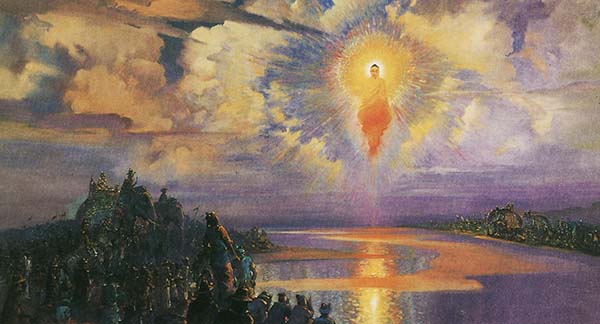I don’t know about any of you, but for me, the last several months have felt like a particularly bad time to be a human being.
It seems like every day there’s some new horror making headlines. Mass shootings, which seemed too frequent when they occurred once every couple of years, have literally become a daily occurrence in our country.
We don’t even have time to process one tragedy before the next one preempts it from our attention.
It’s bad enough when the perpetrator is a “madman,” alienated from his community and prone to dangerous self-aggrandizement, but what about all of the murders committed by police—the people who are sworn to protect and serve in our name. Unarmed people of color are dispatched with disturbing regularity and complete impunity, as much of the public shrugs and figures they were “thugs” who had it coming.
Also largely unmourned are the dozens of transgender people murdered each year by people who feel threatened and disgusted by their failure to stay put in their assigned box.
The endless war raging in the Middle East continues to radicalize a continuous stream of angry young men, motivated not by religion so much as by that internal sickness that comes from spending years ground down by desperation and powerlessness. That soul sickness pours out in the form of terrorism—coolly premeditated acts of mass violence designed to make the biggest psychological impact possible.
Elsewhere, genocidal regimes send floods of refugees pouring out of their countries, looking for a safe haven anywhere on this troubled Earth.
This state of affairs is certainly not a new development in human history. Shakyamuni Buddha was no stranger to war. Toward the end of his life, more than 2,500 years ago, the Buddha saw his own clan, the Shakyas exterminated by an army from the neighboring kingdom of Magadha.
According to the Pali canon, Buddha tried three times to head off the impending war between these ancient countries. As the two armies stood poised for battle, he placed himself between them and calmly sat in mediation. When the King of Magadha, not wanting the blood of the renowned sage on his hands, asked him to move, the Buddha explained to the king that killing only perpetuates the cycle of violence that eventually comes back on oneself.
These attempts seemed to work at first. The king was initially swayed by the Buddha’s reason and logic, and three times he turned back from attacking.
But, each time, the Buddha’s words of wisdom were eventually forgotten, drowned out by the many voices of the king’s advisors, who continually encouraged him to conquer Kapilavastu, the Buddha’s homeland.
Finally, there was nothing Shakyamuni Buddha could do but watch wordlessly as his country and his people were destroyed.
From our perspective, firmly wedged under the lens of the microscope, it certainly seems that the human race has degenerated to the point of no return. But historians, with their wider lens, hold out some hope that humans have actually become less violent, not more so, over time—that, in fact, we may even be evolving into a kinder, gentler species.
I have no idea whether or not this is actually the case, but if it were true, it would align with the Mahayana ideal that all of us are destined for realization.
This incongruity between the statistical data and our lived experience may simply be the result of our greater powers of communication. Atrocities from the other side of the world occur in cinematic detail right in the comfort of our own living rooms. In a very real way, we humans have closed the gap of time and space that Buddhists have always known was an illusion.
One of the simple, or miscellaneous, koans that beginning students work with in our tradition commands us to, “Stop the fighting across the river.”
But what can we do, grasping our remote controls or computer keyboards, safety on our side of the river, or the glowing plasma screen? In the face of the parade of human tragedy, it can be hard to know how to respond, particularly when it all seems so far away. Like the monks of the East and West halls, watching agape as Nansen held his knife to that wriggling feline, we want to help—our Bodhisattva vows compel us to help—but we don’t know what to do, don’t know what to say. We think perhaps a word of Zen could help, but it’s all too big, too fast, too overwhelming, and that magic word just won’t come in time.
All of us have our go-to responses when times get tough. Some of us drink or do drugs to escape, while others of us are particularly cunning at dissociating from it all without chemical assistance. Increasingly, with every incoming news report, I’ve found myself just numbing it all out, unable to allow any more hurt to come in.
One particularly good way to shut out painful realities is to intellectualize about them. If we can speak about human tragedy as though we are discussing a mathematics equation or a football game, we can feel virtuous about our serious-mindedness without ever having to confront the depth of the horror.
Fascism is another popular response. People seek security by scapegoating the least powerful among us, blaming the poor, women, immigrants, people of color, or gays and lesbians, for the societal ills that keep us all feeling so confused and scared.
And lest you accuse me of being partisan, the strident, finger-pointing hatred of many liberal Americas for their conservative neighbors is just the back side of the same coin.
One of the first Zen teachers I ever met was Zenkei Blanche Hartman, former abbess of the San Francisco Zen Center. She had been an active member of the Communist party for many years, and a peace activist during the Vietnam war era. She recalled how one day she was struck by how angry and aggressive she and her fellow activists were.
She said, “I realized with chagrin that I was fighting for peace. There was no peace in me. I was making enemies of those who disagreed with me and wishing them ill. The inherent contradiction stopped me in my tracks and I began to wonder how I could work for peace with a peaceful mind.”
What all of these responses have in common is that they rely upon and reinforce the delusion of separation, and therefore, even when they temporarily result in an outcome we desire, they all ultimately lead to suffering.
This is just how humans beings habitually think. I’m in here, you’re out there. These people are my people, my tribe, and those people out there are a threat. The size and shape and colors of the borders may change, but the basic rules of the game never seem to. As long as we persist in thinking this way, neither we or this hurting world will have any peace.
“Stop the fighting across the river!”
This koan comes as part of a set of koans meant to jar us out of this conditioned way of thinking.
“Stop the sound of that distant church bell.” How can we? We’re here, and it’s out there somewhere. Ringing away. We’re not sure where. Bong, bong, bong! And we can’t do a thing about it. If we wrestle with this in earnest, though, with the absurdity of the command and our powerlessness to obey it, a shift may take place. The distance collapses and suddenly we find that there is no bell and no one who hears a bell. There is only bong, bong, bong! And the sound is no longer out there somewhere, it’s right here, ringing in our own hearts and minds.
This is also true of all of the violence, greed, and cruelty in the world. If we see clearly, we know that none of it is “out there” anywhere. It’s all right here, in us. So how do we stop it?
The same way we solve any koan. We have to sit down and look it in the eye. Open to it. We won’t get anywhere by denying it, fighting it, or hiding it behind a sweet, gentle mask.
The same three poisons—greed, anger, and ignorance—that have been behind every war, conquest, or holocaust, are alive and well inside all of us. And as long as they lie hidden in the shadows, there’s a good chance we’ll trip over them.
We have to bring them out into the light. And so, sitting in silence, immovable like Buddha under the bodhi tree, we vow to look deeply, not to flinch in the face of reality. Gathering together our hearts and minds—which is the literal definition of the Japanese word sesshin—we awaken to it all, right here.
This time is precious. Coming here together. Having this place, these teachers, this group of people to practice with. It’s an opportunity not everyone has. As people who vow to be of service to all beings, we have a responsibility not to waste it, but to spend our time on the cushion embodying the peace we want to see in the world.
Like Shakyamuni standing between the armies of Magadha and Kapilavastu, we may not be able to keep terrible things from happening in the world. But violence and hatred are like a virus, and by learning to see the depth of our own greed, hatred, and ignorance, and by continually letting them go, we can stop them from spreading. We can heal ourselves and, by realizing there is no river to cross, the world.



